By DAVE SOLOMON, Granite State News Collaborative
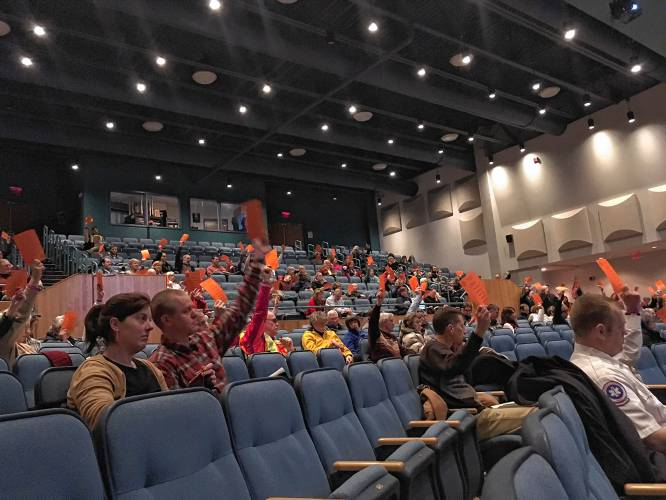
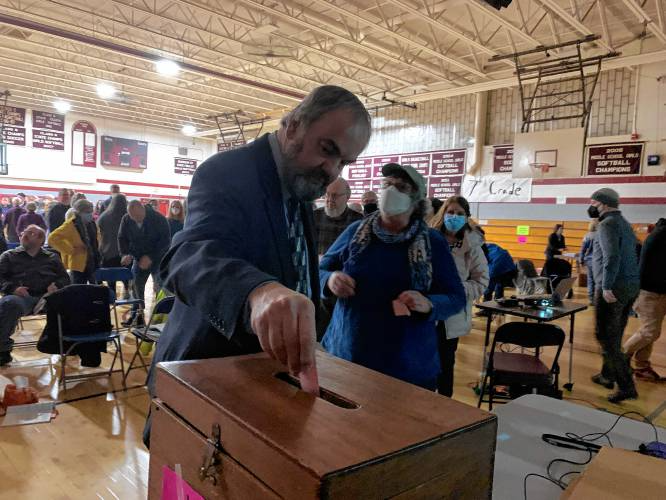
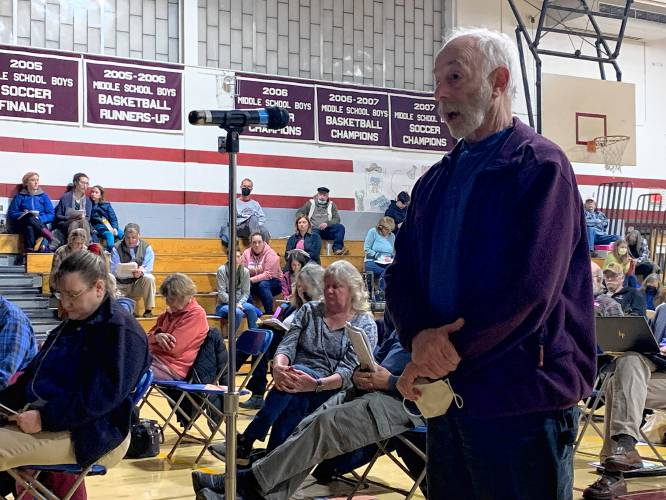
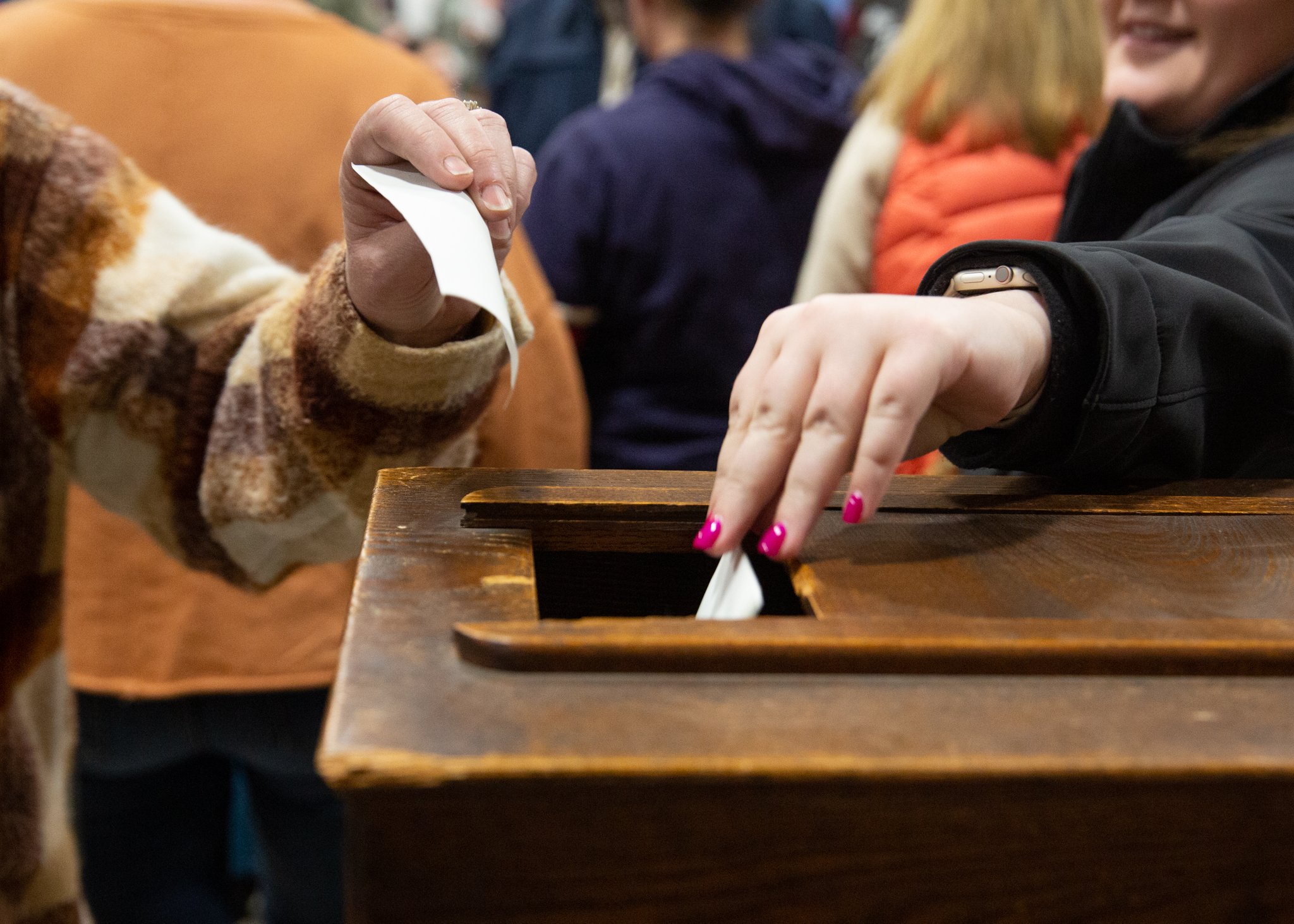
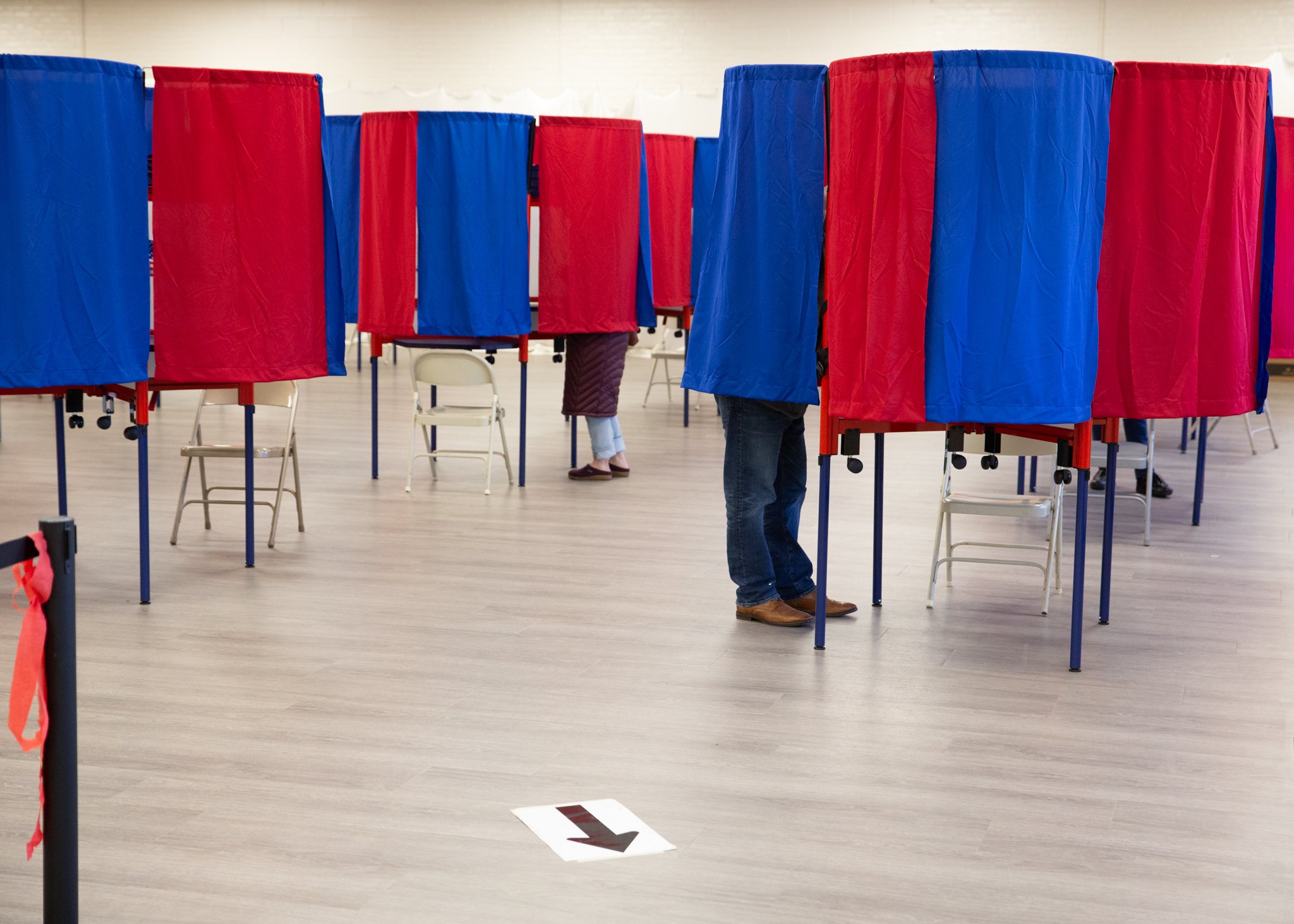
The classic New England town meeting, a form of government unique to our region, was considered by Norman Rockwell to be one of the purest expressions of free speech, immortalized in his famous series "The Four Freedoms."
But since the 1990s, some New Hampshire towns have abandoned their annual town meeting for election-day balloting at the polls on the second Tuesday in March. No one can deny that the Official Ballot Law of 1995, known as SB2, has led to larger voter turnout during town meeting season, but there's also no denying that something's been lost in the process.
After nearly 30 years of debating the issue, the sorting out appears to have settled down. Towns that adopted SB2 have been reluctant to go back to town meetings despite several attempts over the years. On the other hand, towns that kept their town meeting intact have repeatedly defeated efforts to introduce SB2.
Last year the issue was taken up in only two towns, Wilton and Enfield, both of which stayed with town meeting. This year, the municipal association knows of only one town, Moultonborough, where SB 2 supporters will try for the fifth time to make the change.
According to data compiled by the New Hampshire Municipal Association, most of the action surrounding SB2 occurred in the first decade after the law took effect in 1996. By 2009, most of the towns that were going to convert to SB2 had done so, with a few exceptions like Lee and Northwood (2011) and Gilmanton (2012).
The 57 towns that had adopted SB2 by 2006 had an average of 7,500 people per municipality, while the non-SB2 towns had an average population of about 2,600. The SB2 towns were also the fastest growing, with population growth of almost 1,000 people per year in the preceding 10 years, three times the growth rate of towns that did not adopt SB2.
Size not the only factor
Despite those statistics, population and growth rates alone do not explain the trend, according to Margaret M.L. Byrnes, executive director of the municipal association.
Many of the SB 2 towns are in the more populated southern tier, she said, but not all: “It’s hard to see a real trend based on location or size,” she said. “There is something else happening in these communities that’s driving the decision, whether it’s a core group that sees value in SB2 and drives the bus making that happen, or a core group devoted to preserving traditional town meeting.”
The decision appears to have as much to do with community culture as population. Byrnes lives in Bow, a growing community of 8,000 that you’d think would fit the SB2 model but has instead defeated SB2 conversion six times. Byrnes estimates the town meeting crowd at about 200 last year. If voting was held at the polling station instead of at a day-long meeting, that number could easily be 2,000, but Bow voters have not been impressed with that argument.
“I think Bow is a classic strong engagement town, with a strong base of engaged individuals, those who volunteer, those who really care about the school and town, and have a history with the town and town meeting,” she said.
Bethlehem, an SB2 town since 2001 with a population of 2,500, has defeated at least two efforts to restore town meeting. Does that mean Bethlehem people are less engaged? Not likely. But it does mean there is a core of the community that supports the arguments in favor of SB2, especially expansion of the franchise and more convenient voting.
The state has 234 municipalities, but 13 of them are incorporated as cities and seven are large communities like Derry or Durham that have town councils, leaving the other 214 to choose from traditional town meeting or voting at the polls.
Within that group, 73 have adopted SB2, or roughly a third. Once voters prevail one way or the other, there is very little chance of turning back.
Hard changes to make
In the years since SB2 became law, only three towns have adopted the measure and later reverted to town meeting – Dorchester, Enfield and Orange. It’s not for lack of trying. From 1999 to 2009, Epsom and Grafton saw four unsuccessful attempts to repeal SB2. At least three unsuccessful repeal efforts took place in Allenstown, Alstead, Canaan and Charlestown.
Conversely, towns that turn away from SB2 have done so consistently, despite persistent efforts by pro-ballot factions. As stated previously, Bow rejected six efforts to approve SB2. There were also six unsuccessful votes in Hinsdale, seven in Temple and nine in Sanbornton, the last in 2012.
“I have heard anecdotally about why it’s hard to go back,” said Byrnes. “There are often significant citizen based movements to go to SB2 in the first place and those who are supportive of SB2 will ramp up their efforts to keep it in place if there is a recession effort.” Then there’s the 3/5ths super majority required for the side that wants to make a change.
In addition to a broader franchise and more convenient voting, SB2 supporters worry that traditional town meetings are largely attended by the kind of engaged people Byrnes alludes to, who may be more likely to vote “yes” on expensive bond issues and employee contracts.
A petition to restore SB2 voting in Enfield at the 2022 town meeting emerged after town officials proposed two multi-million-dollar bonds -- a $7.2 million public safety facility for police, fire and EMS, and a $5.8 million renovation to the town offices and library.
Voters defeated the warrant article to restore SB2 and approved both bond measures by the super majorities required.
Appealing to identity
While the arguments for SB2 appeal to logic, the Enfield town meeting minutes from last year show opponents striking a more emotional chord, describing town meetings as part of the community’s identity.
“This is the last vestige of what this country is founded on,” said Rebecca Stewart.
Resident Susan Brown was more emphatic, “SB2 is the worst idea that has ever come out of the New Hampshire legislature,” she said, quoting Thomas Jefferson as saying, “Town meeting is the wisest invention ever devised by the wit of man for the perfect exercise of self-government.”
In Wilton last year, an effort to convert from town meeting to SB2 was defeated in a resounding vote of six in favor and 133 opposed, according to the Monadnock Ledger Transcript.
The crowd at the town’s 260th town meeting cheered when Moderator Bill Keefe made the announcement, “There will be a 261st town meeting.”
These articles are being shared by partners in The Granite State News Collaborative. For more information visit collaborativenh.org.
